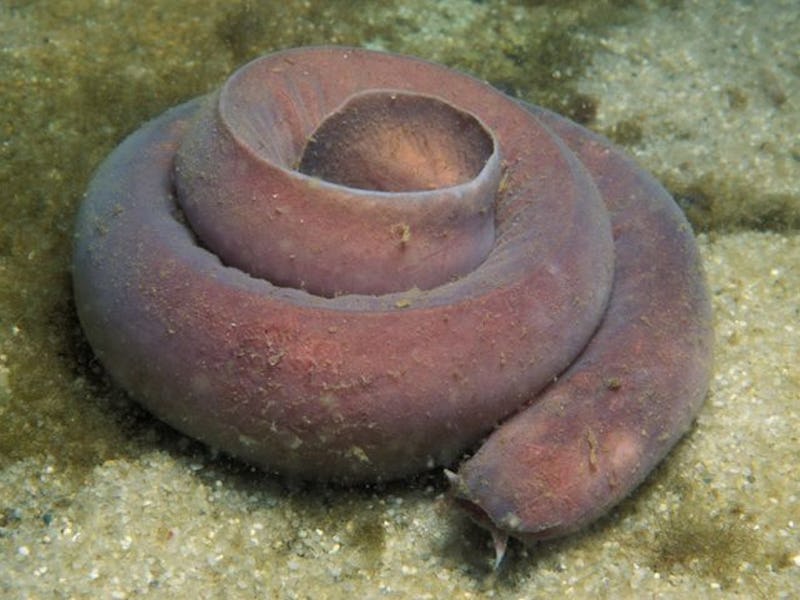Scientists Discover That Human Brains Are Surprisingly Similar to This Ugly Fish
Our evolutionary history isn't the prettiest.

Some humans protest evolutionary theory because they don’t enjoy comparisons with apes. They’re going to love a new paper in Nature that reinforces how we’re also evolutionarily linked to an ugly AF sea demon known as the hagfish.
To be fair, nobody wants to be associated with this fish, which looks like the cross between a massive bruised earthworm and the infant alien in Alien. But you can’t argue with evolution: The research team from Japan’s RIKEN research institute and Hyogo College of Medicine reports that hagfish and human brains have a lot in common, which gives us clues about how — and when — human intelligence evolved.
The scientists wanted to figure out the evolutionary origin of the vertebrate brains — that is, the brains of any animal with a backbone, ourselves and hagfish included. Vertebrates can be split into two groups: Those with jaws (us) and those without jaws (hagfish). It was previously believed that these groups cleaved the evolutionary tree some 450 million years ago.
But by looking closely at hagfish embryo brains, the researchers realized that fish and humans had a lot more in common, in terms of brain structure, with jawed vertebrates — known as gnathostomes — than they previously thought. The parts of our brain that form the cerebral cortex, cerebellum, and globus pallidus have pretty clear parallels in hagfish brains, which suggests that our evolutionary split happened even further back than we thought — closer to 500 million years ago.
We’ve got a long way to go before we can figure out where and when intelligence evolved in the vertebrate brain. Determining when vertebrates evolved the “cerebral foundation,” as one of the researchers described the basis for the intelligent brain, will be crucial. And though the hagfish study gives us a more specific time frame to work with, we’ve still got a long way to go.
But hey, at least our common hagfish ancestor didn’t pass on its looks.